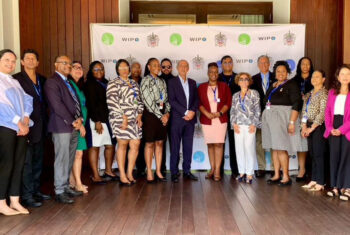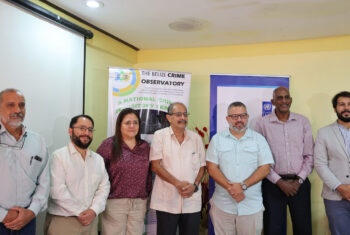JOINT PRESS RELEASE
Belize City. May 5, 2020. 10:20 a.m.
As nationwide school closures disrupt the education for more than 80 per cent of students worldwide, UNICEF is significantly scaling up support in all countries to help children continue to access education and health care programs.
“Schools in the majority of countries worldwide have closed. It is an unprecedented situation and unless we collectively act now to protect children’s education, societies and economies will feel the burden long after we’ve beaten COVID-19. In the most vulnerable communities, the impact will span generations,” said Robert Jenkins, UNICEF Global Chief of Education.
In Belize, UNICEF continues to pledge its commitment to support programs initiated and subsidized by the Government of Belize. To this end, UNICEF has provided funding for access to a thousand (1000) nutrition hampers, including hygiene kits to be distributed to the families of children who have been beneficiaries of the Ministry of Education’s School Feeding Program.
UNICEF Belize is also contributing to providing technical support and funds to assist with the identification and development of context-appropriate strategies to ensure educational continuity through flexible and distance home-based learning methods delivered through on-line platforms. The organization supports the Ministry of Education for the development and implementation of television and radio programmes to continue learning and provide psychosocial support for children and families.
UNICEF continues to partner with over 145 countries to:
1. Support governments’ crisis response plans including technical assistance, rapid risk analysis, data collection, and planning for the reopening of schools.
2. Support the planning and implementation of safe school operation and risk communication including translating, printing, disseminating and implementing safe school guidelines; equipping schools with hygiene packages and circulating critical information on disease prevention; and training teachers and caregivers in psychosocial and mental health support for themselves and students.
3. Ensure continuity of learning and access to remote learning programs including designing and preparing alternative education programmes through online, radio and television.
4. Enhance knowledge sharing and capacity building for the current response and future pandemics.
###
Notes to editors
Earlier this month, UNICEF, along with the World Health Organization and the International Federation of Red Cross and Red Crescent Societies, released operational guidance on protecting children and schools from COVID-19.
About UNICEF
UNICEF works in some of the world’s toughest places, to reach the world’s most disadvantaged children. Across more than 190 countries and territories, we work for every child, everywhere, to build a better world for everyone.
Contact:
Mr. Michel Guinand
Officer in Charge and Social Policy Specialist
mguinand@unicef.org
Denise Robateau
Education Officer and Emergency Focal Point
drobateau@unicef.org


